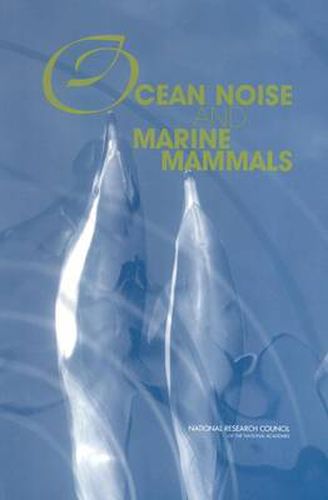Readings Newsletter
Become a Readings Member to make your shopping experience even easier.
Sign in or sign up for free!
You’re not far away from qualifying for FREE standard shipping within Australia
You’ve qualified for FREE standard shipping within Australia
The cart is loading…






For the 119 species of marine mammals, as well as for some other aquatic animals, sound is the primary means of learning about the environment and of communicating, navigating, and foraging. The possibility that human-generated noise could harm marine mammals or significantly interfere with their normal activities is an issue of increasing concern. Noise and its potential impacts have been regulated since the passage of the Marine Mammal Protection Act of 1972. Public awareness of the issue escalated in 1990s when researchers began using high-intensity sound to measure ocean climate changes. More recently, the stranding of beaked whales in proximity to Navy sonar use has again put the issue in the spotlight. Ocean Noise and Marine Mammals reviews sources of noise in the ocean environment, what is known of the responses of marine mammals to acoustic disturbance, and what models exist for describing ocean noise and marine mammal responses. Recommendations are made for future data gathering efforts, studies of marine mammal behavior and physiology, and modeling efforts necessary to determine what the long- and short-term impacts of ocean noise on marine mammals.
$9.00 standard shipping within Australia
FREE standard shipping within Australia for orders over $100.00
Express & International shipping calculated at checkout
For the 119 species of marine mammals, as well as for some other aquatic animals, sound is the primary means of learning about the environment and of communicating, navigating, and foraging. The possibility that human-generated noise could harm marine mammals or significantly interfere with their normal activities is an issue of increasing concern. Noise and its potential impacts have been regulated since the passage of the Marine Mammal Protection Act of 1972. Public awareness of the issue escalated in 1990s when researchers began using high-intensity sound to measure ocean climate changes. More recently, the stranding of beaked whales in proximity to Navy sonar use has again put the issue in the spotlight. Ocean Noise and Marine Mammals reviews sources of noise in the ocean environment, what is known of the responses of marine mammals to acoustic disturbance, and what models exist for describing ocean noise and marine mammal responses. Recommendations are made for future data gathering efforts, studies of marine mammal behavior and physiology, and modeling efforts necessary to determine what the long- and short-term impacts of ocean noise on marine mammals.